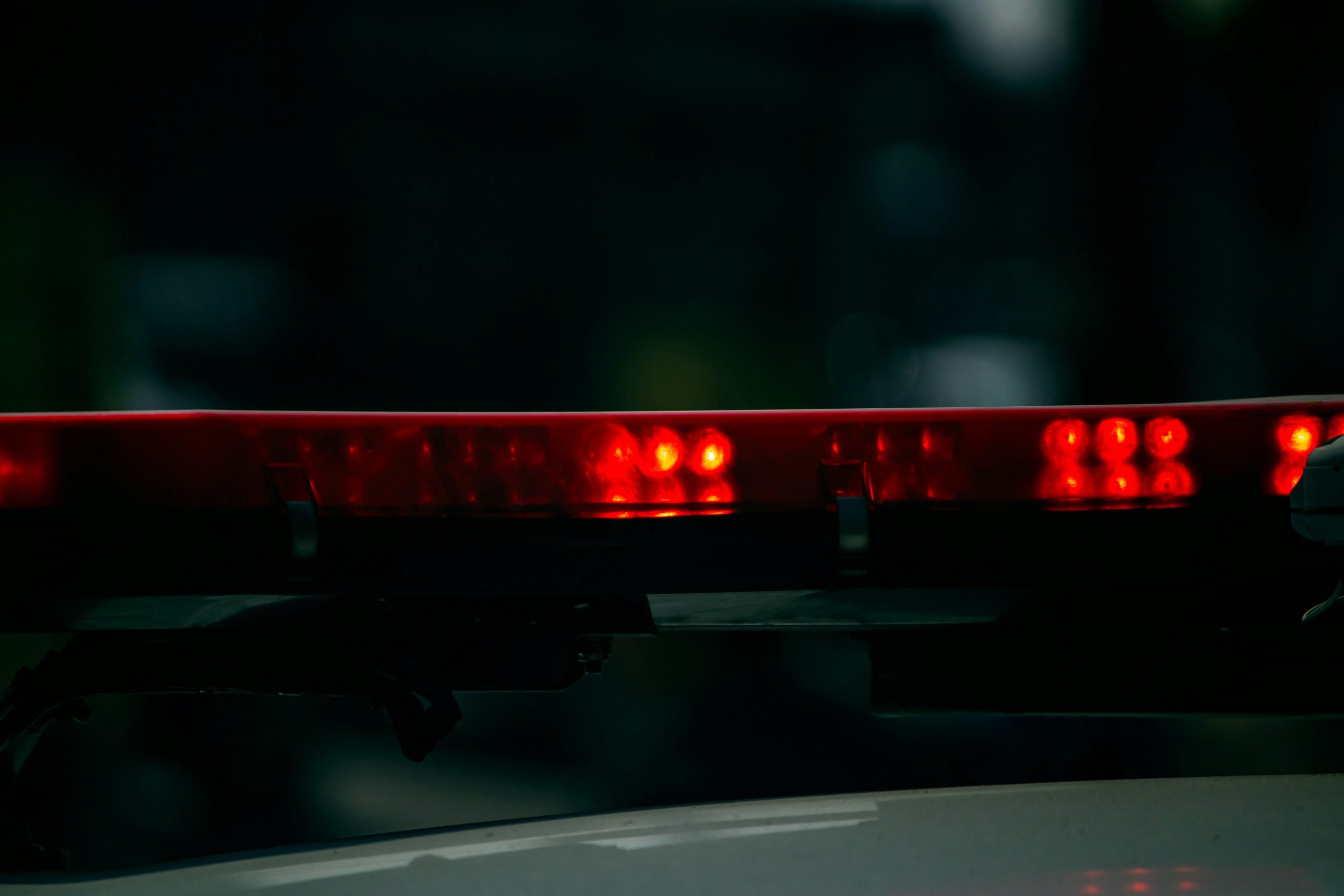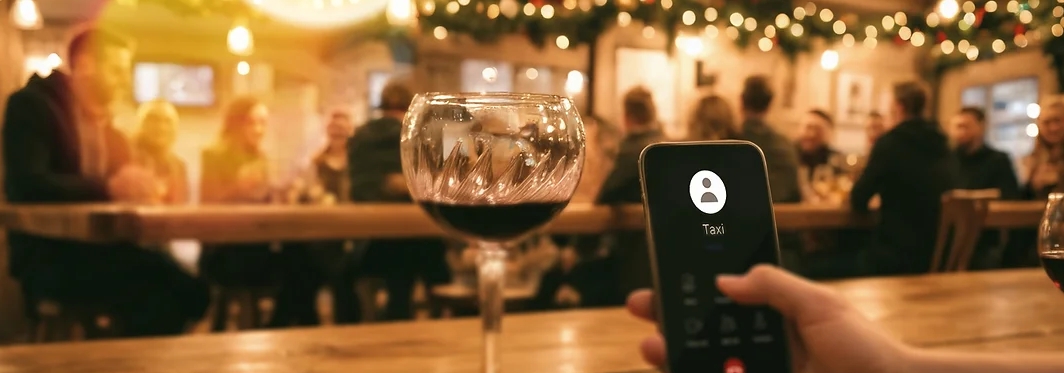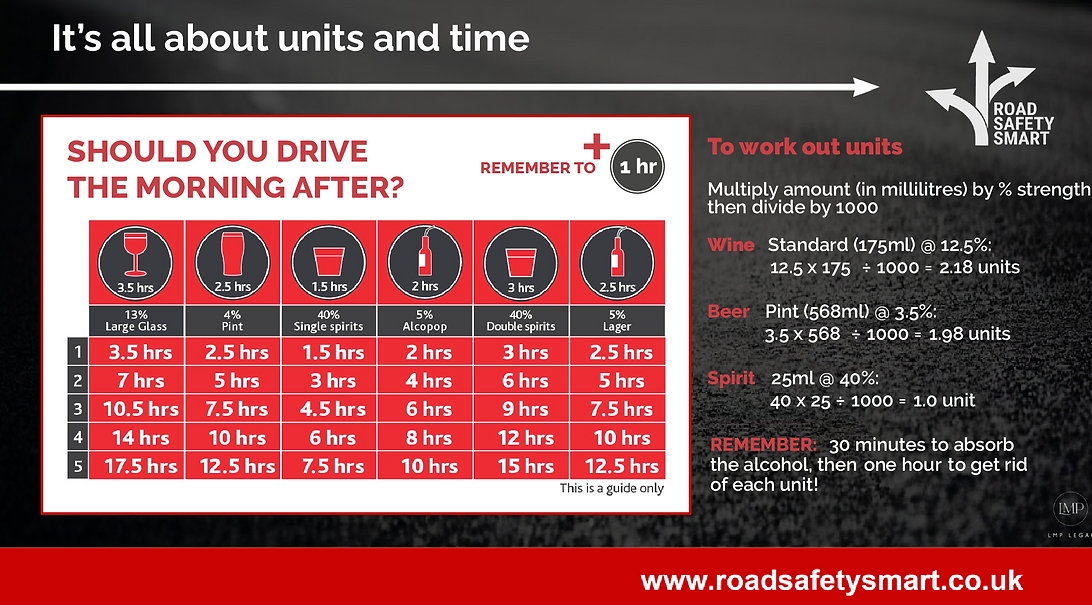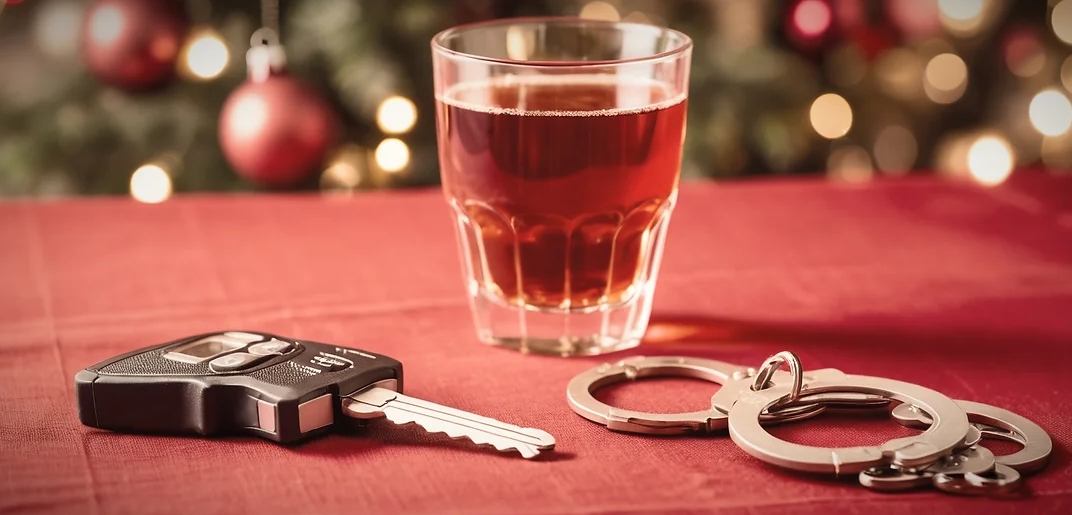The festive season is upon us and with it comes the worrying yet inevitable increase in driving offences relating to alcohol and drugs. Increased social gatherings, higher traffic volume and an increase in late-night driving all contribute to this notable rise in drink & drug driving offences.
Kristina Lancaster of LMP Legal writes:
Despite widespread awareness campaigns in recent years, many people still underestimate the dangers associated with impaired driving. It’s important we all know the risks and consequences of driving under the influence, including the often-overlooked dangers of the ‘morning after’.
The immediate risks
Impaired Judgment and Coordination: Alcohol and drugs impair cognitive functions and motor skills, making it difficult for drivers to make quick decisions and react appropriately to road conditions. This increases the likelihood of collisions.
Reduced Reaction Time: Substances like alcohol and drugs slow down the brain’s processing speed, leading to delayed reactions. This can be particularly dangerous in situations that require immediate responses, such as sudden stops or avoiding obstacles.
Loss of Concentration: Intoxicated drivers often struggle to maintain focus on the road, leading to erratic driving behaviour such as swerving, speeding, or failing to obey traffic signals.
The morning after
Many people believe that once they have slept, they are safe to drive the next morning. However, this is a dangerous misconception. Alcohol and drugs remain in the system for several hours, and their effects can linger even after the initial high has worn off. No amount of food, coffee or cold showers will help. The only factor is time.
Residual Impairment: Even if you feel sober, your body may still be processing the substances, leading to residual impairment. This can affect your reaction time, judgement, and coordination.
Fatigue: After a night of drinking or drug use, you are likely to be fatigued, which can further impair your driving ability. Fatigue can be just as dangerous as driving under the influence, as it reduces alertness and increases the risk of falling asleep at the wheel.
Legal Risks: If you are stopped by the police the morning after a night of drinking or drug use, you could still be over the legal limit.

And it’s not just about the effects…
The police do not have to prove that you are impaired.
If there is evidence that you are over the legal limit for alcohol or still have drugs in your system, you will face the same legal consequences as if you were caught driving immediately after consuming these substances. Some drugs (for example cocaine) can stay in the system for 4 to 5 days.
The long-term consequences
Legal Penalties: Being caught driving under the influence can result in severe legal consequences, including hefty fines, licence suspension, and even imprisonment. These penalties can have long-lasting effects on a person’s life and career. We explore the specific offences and their sentences in more detail below.
Financial Costs: Beyond legal fees, individuals may face increased insurance premiums, vehicle repair costs, and potential medical expenses if involved in a collision.
Emotional and Social Impact: Causing a collision whilst impaired can lead to feelings of guilt, shame, and anxiety. It can also strain relationships with family and friends, and in severe cases, result in the loss of life.
So what are the driving offences relating to drink or drugs, and what sentences do they carry?
- Driving whilst unfit through drink or drugs
- Driving with excess alcohol
- Driving with excess drugs
- Refusing to provide a specimen
- Causing death by careless driving when under the influence
- Causing serious injury by careless driving when under the influence
The penalties for causing death or serious injury while under the influence are much harsher, reflecting the increased danger posed by impaired driving

Of course, the festive season should be a time of joy and celebration, but it’s crucial to plan ahead and ensure you have a safe way to get home if you plan to drink. Using public transport, ride-sharing services, or having a designated driver can help prevent collisions and save lives.
Also don’t forget to think carefully before driving the following day, understand that some drugs can stay in your system for days and KNOW YOUR UNITS.
Below is a helpful guide for how long it takes for the body to break down alcohol and to help understand when it is likely to be safe to drive again. However, this is a guide only.
It is your responsibility to ensure you are both fit to drive and under the prescribed limit before getting behind the wheel.

Being accused of drink driving is a serious matter that can have significant legal and personal consequences. However, there are circumstances where it may be possible to challenge these allegations. If you or someone you know is facing an investigation or prosecution for a Drink or Drug Driving Offence you should contact a specialist motor offence solicitor.
Units and Time information reproduced with permission from LMP Legal partners Road Safety Smart.
 Kristina Lancaster
Kristina Lancaster